Ukraine opposition leader Oleh Tyahnybok urges demonstrators for truce as protesters seize government building in Kiev
Other opposition leader Vitali Klitschko says negotiations achieved very little
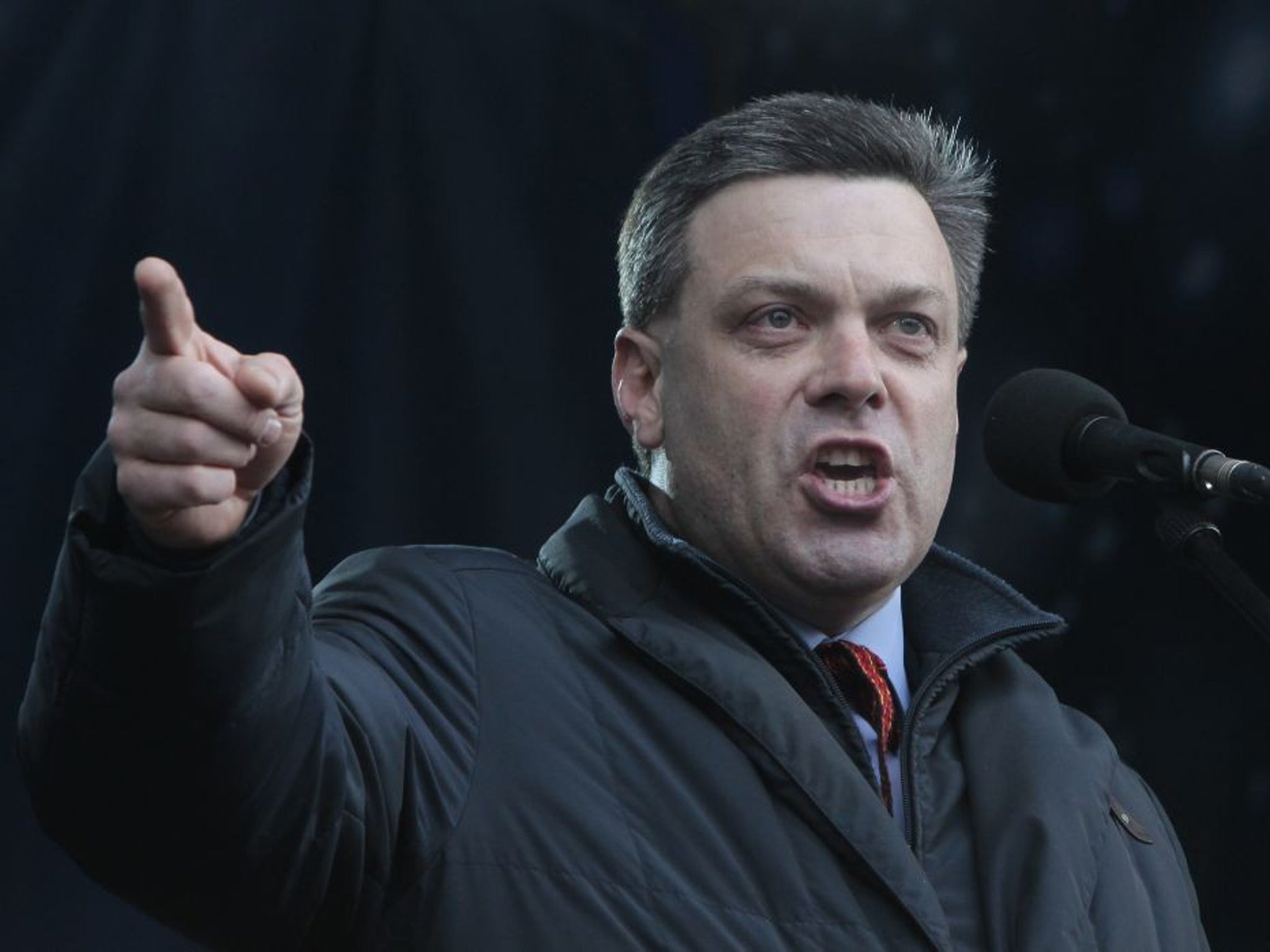
Protesters in Ukraine seized a government building in the capital of Kiev on Friday, intensifying pressure on the government to call elections.
The siege continued after opposition leaders emerged in the morning following talks with President Viktor Yanukovych late on Thursday.
Senior opposition leader Oleh Tyahnybok called on demonstrators in Kiev to continue their truce for several more days, to which some demonstrators responded with chants of “revolution” and “shame”.
Mr Tyahnybok attempted to appease crowds by declaring that he had promised to stop further detentions of protesters and to ensure the release of dozens detained following clashes with police.
But other opposition leaders offered mixed reports on the outcome of the meeting, with Vitali Klitschko saying negotiations had achieved little. “The only thing we were able to achieve was not much,” he told the crowd.
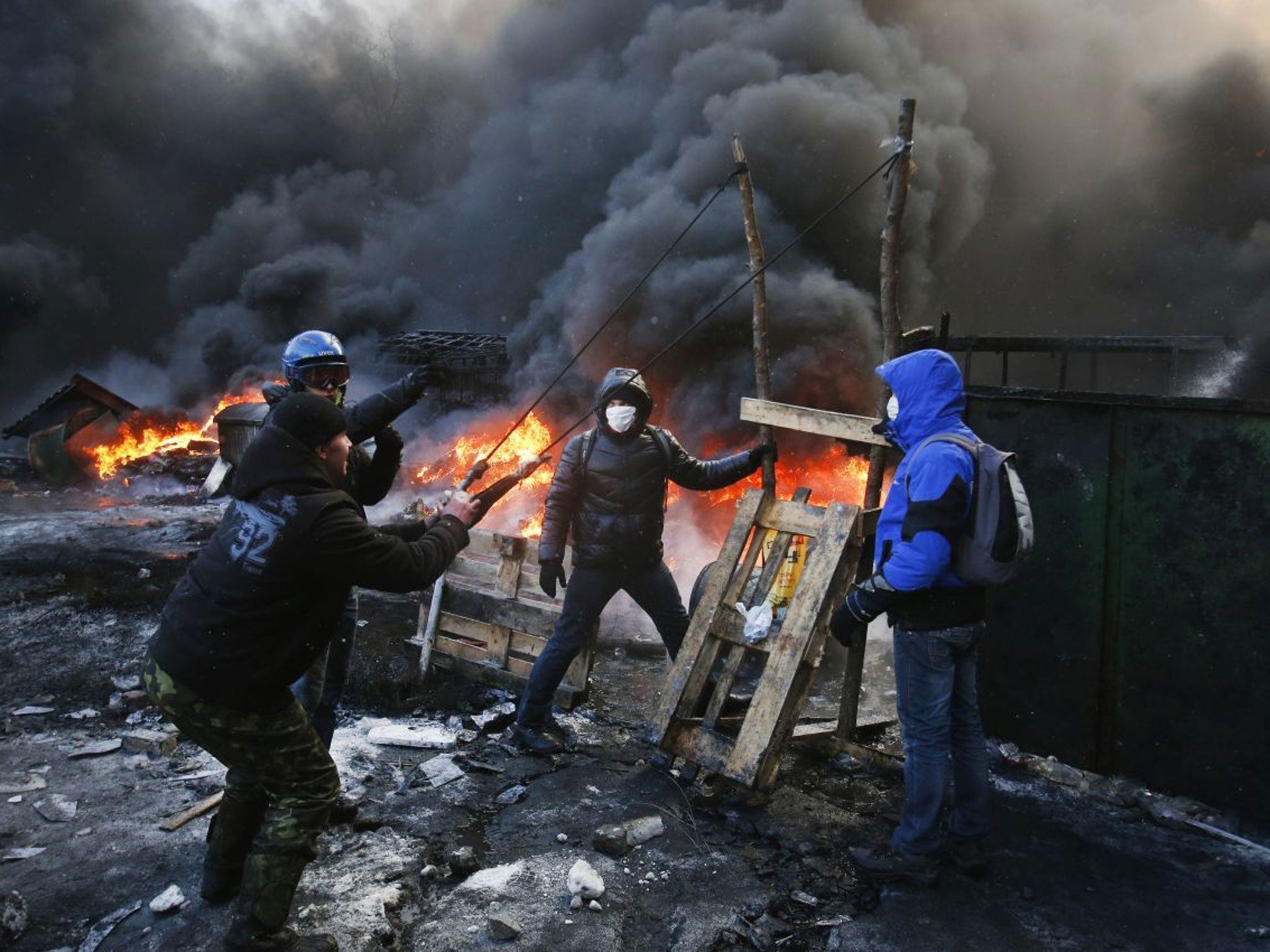
He and Mr Tyahnybok were booed at the barricades by angry demonstrators and the atmosphere appeared tense.
President Yanukovych has called an emergency session of parliament next week to discuss the protests.
Interior Minister Vitali Zakharchenko issued a statement late on Thursday guaranteeing that police would not take action against the large protest camp on Independence Square, known as the Maidan. He also urged police not to react to provocations from demonstrators.
The protests have been largely peaceful, but turned violent on Sunday after Yanukovych pushed through harsh anti-protest laws and stonewalled protesters' demands that he call new elections.
Demonstrations began two months ago after President Yanukovych abruptly rejected an association agreement with the European Union in favour of a bailout loan from Russia. Two people were shot and killed in clashes on Wednesday, marking the first deaths since the protest began, and fuelling fears of further escalation.
One protester Andriy Moiseenko said of the seizure of the Ministry of Agricultural Policy: “We need to keep people warm in the frost. We cannot have people sleeping in tents all the time.”
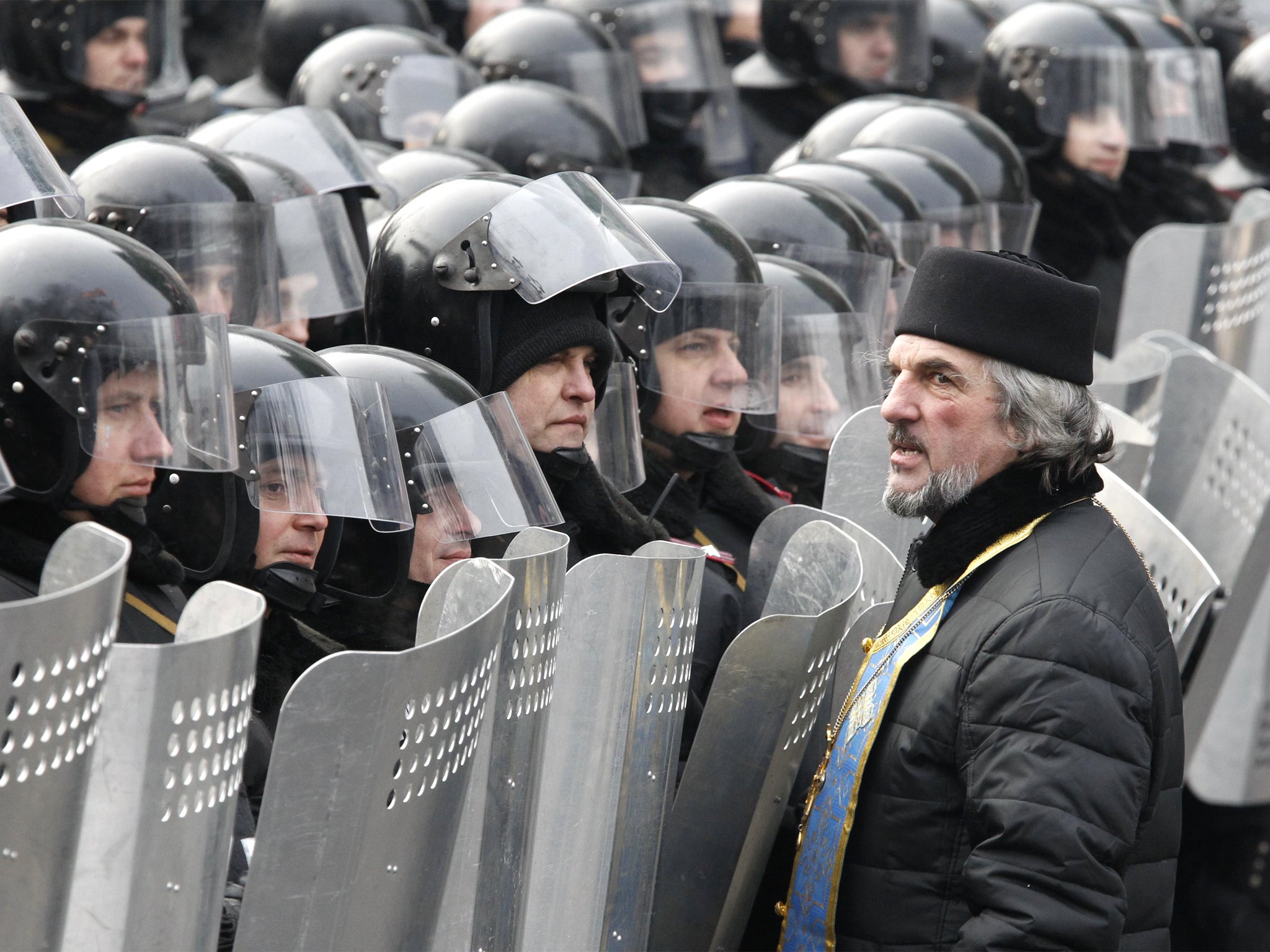
The demonstrators have allowed ministry workers to take their possessions from the building, but have not allowed them to go to work.
The move followed the seizure of local governors' offices in several western regions on Thursday.
In Lviv, near the Polish border, 450 kilometers (280 miles) west of the capital, hundreds of activists burst into the office of the regional governor Oleh Salo, appointed by President Yanukovych, shouting “Revolution!” They forced a local governor to sign a resignation letter and remained in the building, stopping workers from entering.
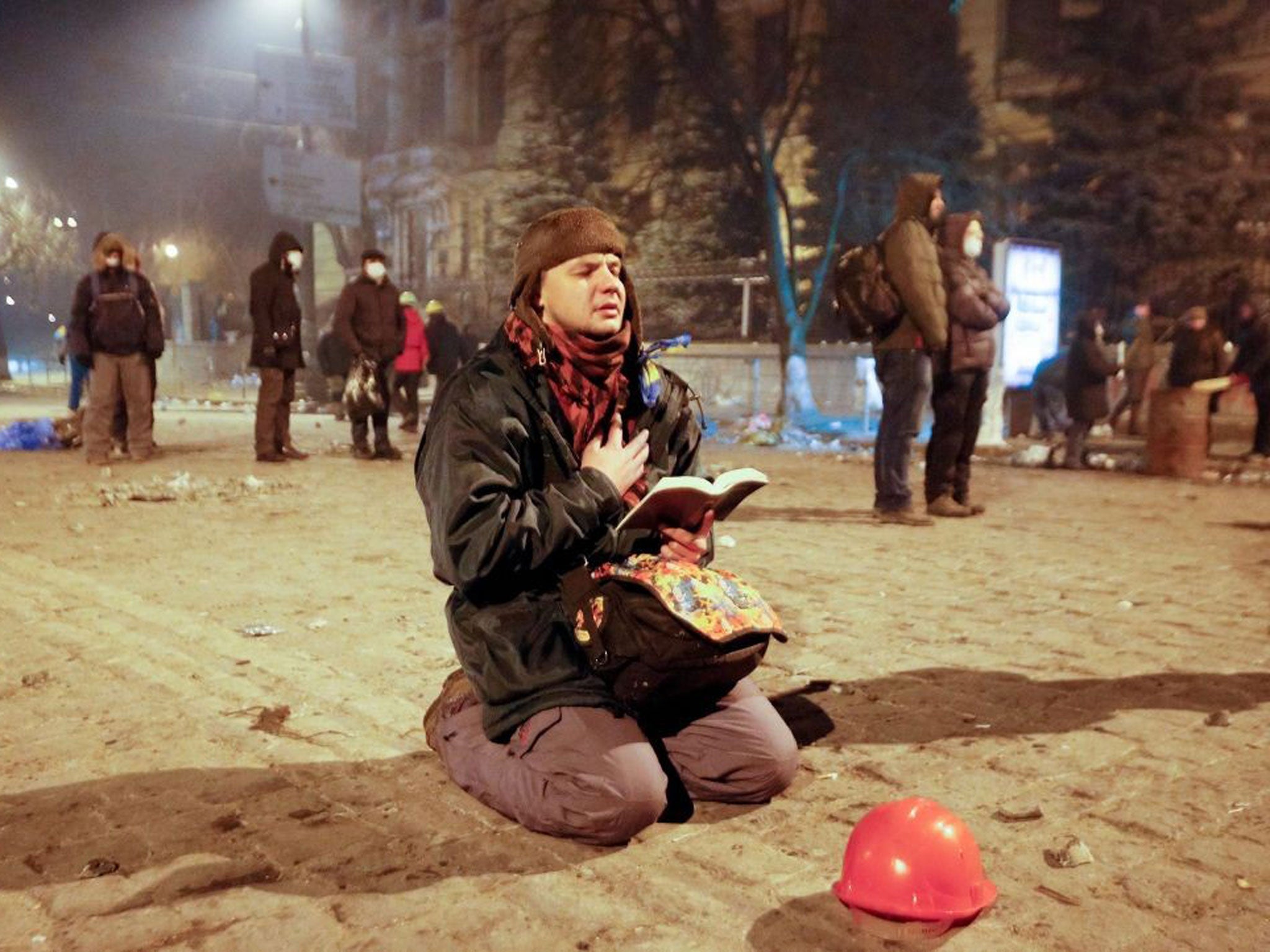
Protesters have also retained control of offices in four other western cities seized Thursday, though they suffered a setback in Cherkasy, about 150 kilometers (90 miles) southeast of Kiev, where police barricaded the governor's building from inside and prevented them from taking control.
The opposition maintains that as many as five people died in Wednesday's clashes, though they say they have no evidence because the bodies were removed by authorities.
The interior ministry said yesterday that 73 people had been taken into custody, including 52 being investigated for “mass riots” - a new criminal charge that carries a prison sentence of up to eight years.
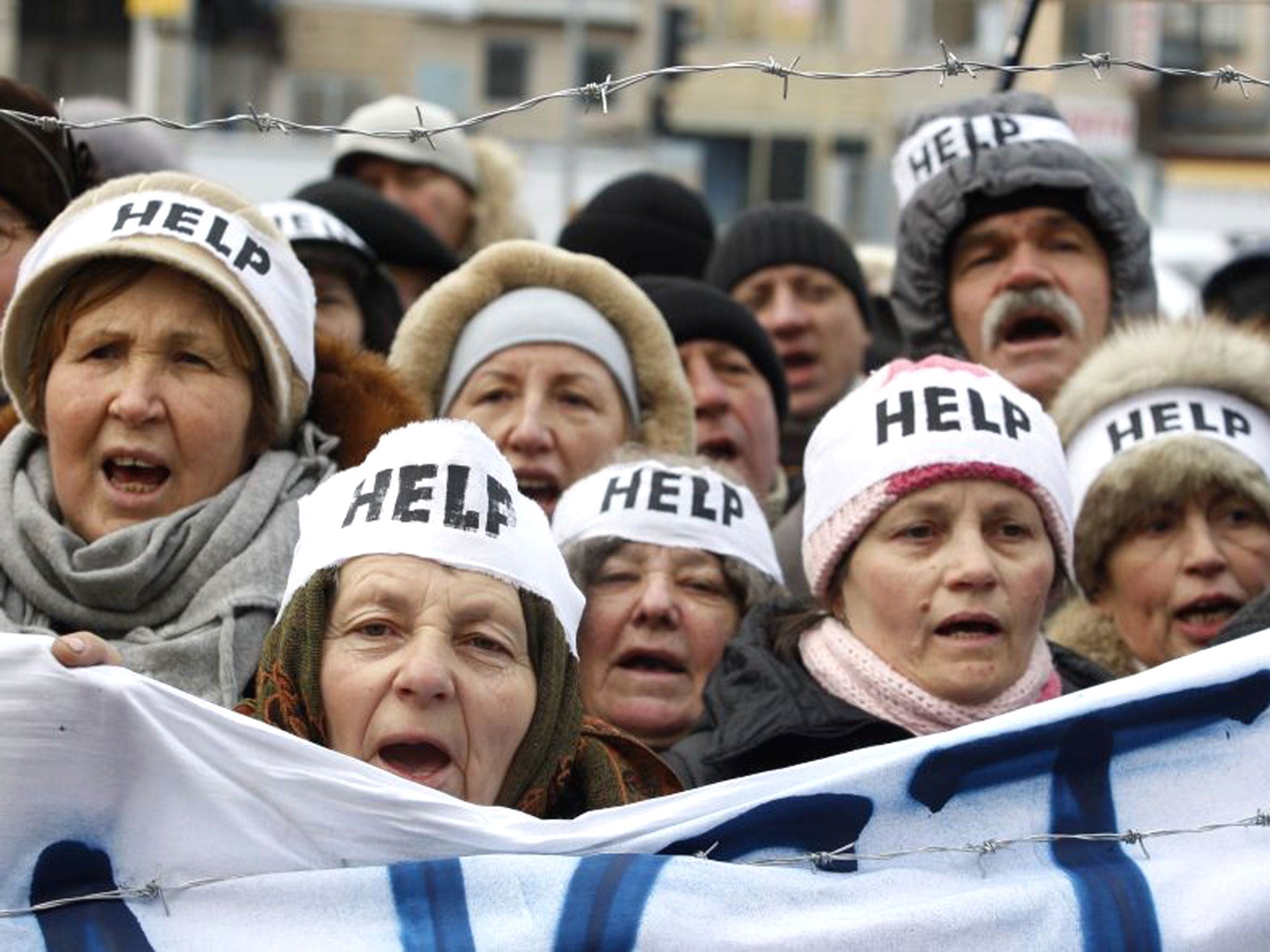
Reaction from the West and neighbouring Russia has been mixed.
On Friday, Germany and France summoned the Ukrainian ambassadors in their capitals to express their concern about the violent crackdown against anti-government protesters in Kiev.
The US has revoked the visas of Ukrainian officials linked to violence and threatened more sanctions.
On Thursday US Vice President Joe Biden called President Yanukovych and urged him to end the bloodshed.
EU Commission President Jose Manuel Barroso said that if the situation in Ukraine does not stabilise, the EU “would assess possible consequences in its relationship”.
Russia accused the West of meddling in Ukraine's affairs.
“We feel regret and indignation about the obvious foreign interference in the developments in Kiev,” President Vladimir Putin's spokesman, Dmitry Peskov, said.
Additional reporting by AP
See more incredible photos of the protests in Kiev below:
Join our commenting forum
Join thought-provoking conversations, follow other Independent readers and see their replies
Comments
Bookmark popover
Removed from bookmarks